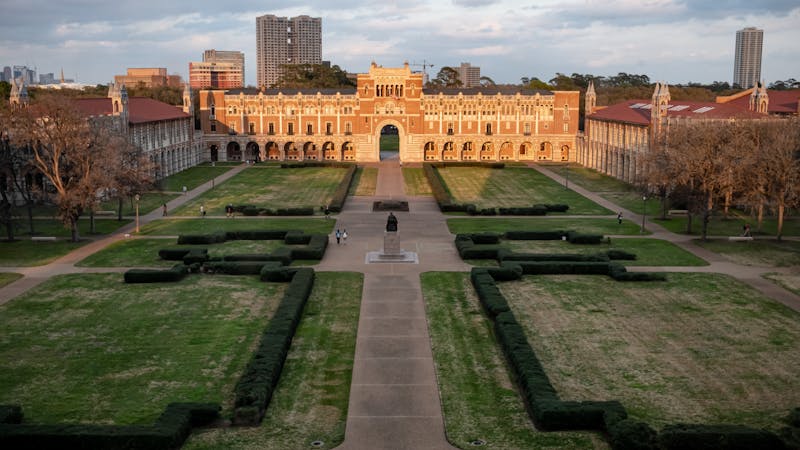Rice professor investigated for ethics violations in gene editing of babies

Courtesy Rice Bioengineering Department
Rice University is investigating Michael Deem, a professor of bioengineering, regarding his involvement in creating the first genetically edited babies.
He Jiankui, a scientist in China who was advised by Deem while pursuing his doctorate at Rice, claims to have altered a genome in the embryos of twin girls who were born this month, according to the New York Times. He has not yet provided proof or evidence, but said he edited the genome to be resistant to HIV. According to the Times, it is highly unusual for scientists to announce groundbreaking research without providing data for peer review.
The Associated Press reported that Deem helped with He’s research and is on the scientific advisory boards of He’s two companies.
Deliberate gene altering is illegal in the United States, but not in China. According to Doug Miller, director of news and media relations at Rice, to the university’s knowledge, none of the clinical research was performed in the United States.
“Regardless of where it was conducted, this work as described in press reports, violates scientific conduct guidelines and is inconsistent with ethical norms of the scientific community and Rice University,” Miller said.
According to the New York Times, a group of 122 Chinese scientists published a statement condemning He’s actions. Rice’s public statement said that the research raises troubling scientific, legal and ethical questions.
Gwendolyn Bradford, Rice professor of philosophy and ethics, said that as a scientist at Rice, Deem and He have obligations to abide by policies set by research organizations and U.S. laws regulating the treatment of human subjects.
Bradford said she believes that the possibility of coercion or exploitation of the parents of the twin girls is very high. The Associated Press reported that Deem claimed the potential participants “absolutely” understood the risks and that he was there when they gave their consent to participate in the research.
Arguments as to why gene editing may be morally impermissible include the violation of an individual’s autonomy — tinkering with their genetic material to bypass their capacity to shape their own life — or the potential of causing harm to the individual, according to Bradford.
“Since gene editing is a very new technology, the effects and ramifications are barely understood,” Bradford wrote in an email.
Bradford said that it is not entirely clear if gene editing is morally impermissible, given that the intended effects of the gene editing process are benevolent ones.
“A primary objection, however, to interventions of this kind is usually put in the form of a ‘slippery slope’ argument – even if some instances of gene editing are benevolent, the same technology could just as easily be used for other purposes, such as enhancement,” Bradford said. “It’s actually quite difficult to make a case against gene editing all by itself. The more compelling concerns arise from either the objectionable treatment of people involved in the experiments, or from the possibility of harm, either to the subjects or to other people in society more generally.”
More from The Rice Thresher

Rice accepts 13% of record-setting ED applications
Rice accepted 13.2% of Early Decision applicants in its first round of admissions for the class of 2029, said Yvonne Romero da Silva, vice president for enrollment. With 2,970 total applicants, this year saw yet another record-high; a 3% increase from last year’s previous high of 2,886. An additional 100 students gained admission through the Questbridge National College Match program, an uptick from last year’s 77.

Students reject divestment proposals
The student body voted to pass S.REF 01, which asks the Rice Management Company to disclose all of its holdings investments, but rejected the remaining divestment proposals. While every ballot measure gained a majority of votes in favor, the remaining three did not achieve the two-thirds majority required to pass.

Student organizations form coalition to support SA referenda
Four Student Association referenda open for the general student body vote today at noon. The referenda call for disclosure of Rice Management Company holdings and divestment from entities that profit off the Israel-Hamas war. The referenda also ask that Rice release a statement condemning genocide and materially support anti-colonial scholarship. Voting will close Dec. 11 at noon and the results will be published the next day. For the referenda to pass, a two-thirds majority with a 20% student body turnout is needed.

Please note All comments are eligible for publication by The Rice Thresher.